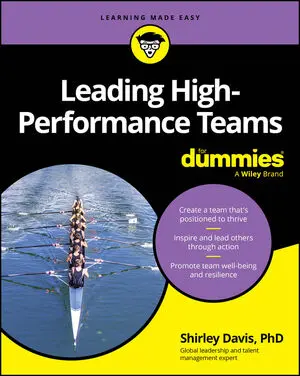While you chew on the preceding question, it should become clear that your method and style of delivering feedback to Millennials should undergo some substantial customization. The once-a-year thing just isn’t going to cut it, nor will the super-formal, boss to employee “let-me-tell-you-what-you-did-wrong” approach of the past. The instantaneous age has groomed Millennials to expect the feedback they receive to have some form of these three pieces: speed, frequency, and transparency.
Speed: I can’t wait a year for feedback
Technology has given the workplace many gifts, and a prominent one, perhaps above all, is speed. For Millennials who were raised on rapidly changing technology — so rapid that their emotional intelligence can barely keep up with it — quick-fire communication is a necessity. If it takes under five minutes to read through three lists of the best Bluetooth headphones, and another minute and a half to post your own review, why can’t in-person reviews be just as fast? While annual feedback used to make employees thrive, the world has become too fast for that process to be as effective.Luckily, a solution lies in the midst. Some managers employ a daily three-minute one-on-one. Others deliver feedback via text or IM. Still others use what kayak.com has dubbed the five-word performance review. Whatever your method, when possible, deliver feedback as soon as you can (ASAYC). No matter what. ASAYC likely has varied specs in the fine-print for every leader, so expectations need to be set earlier rather than later.
Frequency: I want to be kept in the loop
It’s not just about how quickly you deliver information, but also how often. Regular feedback, whether good or bad, lets your Millennial employees know whether they are on the right track. If yes, awesome. They can keep soldiering on without having that pesky voice in the back of their heads, questioning whether they’re doing things correctly. If not, they have the opportunity to ask some questions and change their approach before investing too much time. Either way it’s a win-win. With frequent micro check-ins, you have a constant pulse about where your employees are at and how they’re feeling, and they get the benefit of knowing exactly where they stand and how they’re doing. Exactly how often is often enough will depend on your organization and, frankly, your Millennial. But simple things like checking in every morning or sending a weekly email can go a long way.Transparency: I want the whole truth
Managers often have to learn the art of delivering feedback that couches, cushions, structures, and/or positions criticism. While this attention to feedback detail makes a nice written paragraph on a page, it does little to tell a Millennial that you’re giving them constructive feedback they need to hear. Growing up in an instant era made them accustomed to instant feedback, and one of the gifts of instant is the lack of time to finesse your words. Adopting speedy and frequent feedback methods will naturally lend itself to a transparent dialogue that communicates trust. When you provide a mostly unfiltered piece of feedback, you’re saying to a Millennial: “I’m telling it like it is because that’s all that I have time for!” This transparency (as long as it isn’t clear to the point of rude) delivers an authentic message that Millennials need, and want, to hear.Avoid potential drawbacks of the instant feedback style
Too much of a good thing is always possible. When adopting this new style of feedback, you may all of a sudden find yourself sucked into the vortex of an inescapable feedback loop with your Millennial employees that keeps you from getting anything done. Setting clear expectations about when, how often, and how long your check-ins may be is crucial to keeping your resources from being drained and your Millennials happy. Additionally, there will be times when pausing to let the dust settle before launching into a critique will be the smartest approach.As you embrace the instantaneous feedback method, keep in mind that
- Millennials are humans, not robots. Speedy delivery of feedback doesn’t mean blunt delivery of feedback. If they just gave a bad presentation, don’t catch them on the way out the door with ideas for doing better next time. They’re probably feeling the sting, and it’s probably a case of “too soon.” Be sure to consider when instant is a good thing and when letting the clock tick for a bit is best.
- Time to reflect is still important, especially for younger employees. Millennials love all things instant, and they may struggle to realize that reflection is crucial to having a productive feedback session. Encourage them to take some time, write a handful of reflections on the project/meeting/task, and then come back together for a quick debrief.
- Documentation may be needed. No one likes it, but it’s necessary in today’s work environment. It can serve as a great record of celebration and also the necessary steps to take if you have to let someone go. Try to keep some of your check-ins informal, but make sure to take some notes afterwards so that you have documentation for your files.
Take a “celebrate, then deliberate” approach with Millennials. Celebrate wins in the moment (with messaging customized for the length, size, and breadth of the project or task), and then deliberate — meet with necessary people one-on-one and give direct feedback, negative and positive. If you don’t take enough time to celebrate wins with Millennials (not just point out the shortcomings), you’ll sow resentment and they’ll become more and more likely to leave your organization.
It’s not all about the Millennial. You need to take care of yourself and your work flow too. Try to find a speed and frequency of delivering feedback that takes care of your Millennials without sacrificing your work or well-being.






